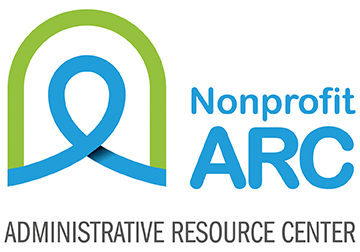 The recently published second annual issue of Impact India – produced by The Bridgespan Group, Dasra, and Stanford Social Innovation Review – is devoted to the Nonprofit sector in India. One article in particular – Why Indian Nonprofits are Experts at Scaling Up – seeks to identify the qualities that inform capacity. The challenges of India’s nonprofit sector are not unlike those in the US, but their ability to confront them in the context of the magnitude of challenges – both in terms of degree and sheer numbers – offers relevant learning.
The recently published second annual issue of Impact India – produced by The Bridgespan Group, Dasra, and Stanford Social Innovation Review – is devoted to the Nonprofit sector in India. One article in particular – Why Indian Nonprofits are Experts at Scaling Up – seeks to identify the qualities that inform capacity. The challenges of India’s nonprofit sector are not unlike those in the US, but their ability to confront them in the context of the magnitude of challenges – both in terms of degree and sheer numbers – offers relevant learning.
Referencing five “mindsets,” the article is thought-provoking and insightful in its application of these underpinnings beyond the geographic, cultural and socio-economic boundaries that define India. Consider how each of the five mindsets referenced – Denominator, Dignity, Radical Frugality, Innovative Hiring and Collaborative – might impact your organization’s ongoing efforts.
The “Denominator Mind-Set” discusses an understanding of how great needs are, an appreciation of the importance of making an impact, and an openness to considering different approaches to achieving outcomes. The reference to a “denominator” represents the total need while the target population served by your organization would represent the numerator.
The “Dignity Mind-Set” stresses keeping the individual in the forefront. Developing a personalized representation of the population served helps avoid desensitization. Putting respect before charitable inclinations further supports this mindset. The article warns against succumbing to “do-goodism,” which has the potential to dilute impact (what we might more conventionally call mission drift).
The “Radical Frugality Mind-Set” offers an interesting balance between acknowledging scarcity while maintaining a philosophy of abundance. Focusing on innovative approaches to programmatic and administrative service delivery, Radical Frugality urges investment in ensuring that processes and systems operate at the highest level of both effectiveness and efficiency. This thinking recognizes that these kinds of investments have a tremendous ROI – or more accurately, failing to optimize in these areas puts the sustainability of the organization at grave risk.
The “Innovative Hiring Mind-Set” recommends seeking talent in non-traditional spaces, and leveraging the mantra of “hire for attitude. train for skill” at a near-exponential level. Using a values-based, often referral-driven model for recruiting talent provides a core workforce that is then trained and supported by technical subject matter experts within the organization.
The “Collaborative Mind-Set” focuses particularly on how NGO’s view their relationship with the government, though ideas of cooperation and conscious seeking out of win-win opportunities transcend virtually all partnerships.
It is not uncommon to hear and feel a sense of anxiety, fatigue or despair when confronted with feedback from seasoned US nonprofit workers. Burnout, self-care and work/life balance are routine topics in the conversation. The Impact India article describes contemplation of the magnitude of the problem as a motivator for at least one of the respondents. They describe a sense of fulfillment in knowing that they are able to do something, despite the fact that so much remains to be done.
Similarly, the stories captured with respect to staying grounded and focused, investing time in ensuring optimal administration, using what might be reasonably described as para-professionals to fill massive skilled labor gaps, and authentically engaging with government as a partner all carry valuable lessons that some, but still far too few nonprofits have adopted as their approaches. It is relevant to note that of the twenty nonprofits highlighted in the SSIR article, none was described as having adopted all of the mindsets referenced.
Perhaps the most important takeaway from the SSIR article lies plainly in the framework presented – that resilience and success in the nonprofit arena may in fact derive from a way of thinking, and that our investment in remaining conscious of how we think and purposeful in cultivating a mindset or collection of mindsets is critical to our trajectory. Onward… and upward!
